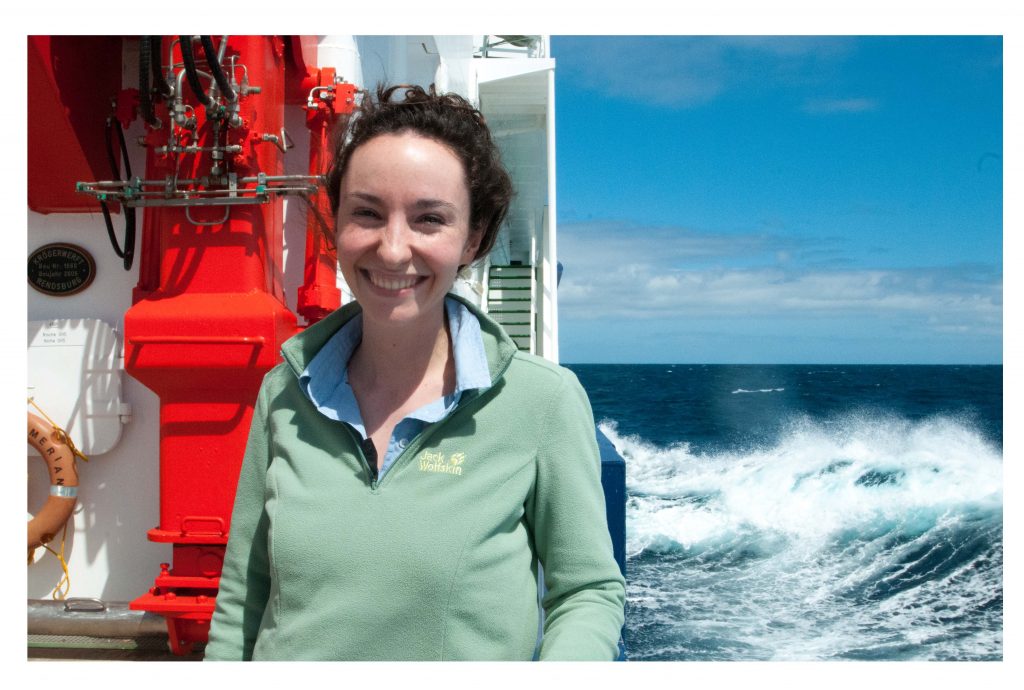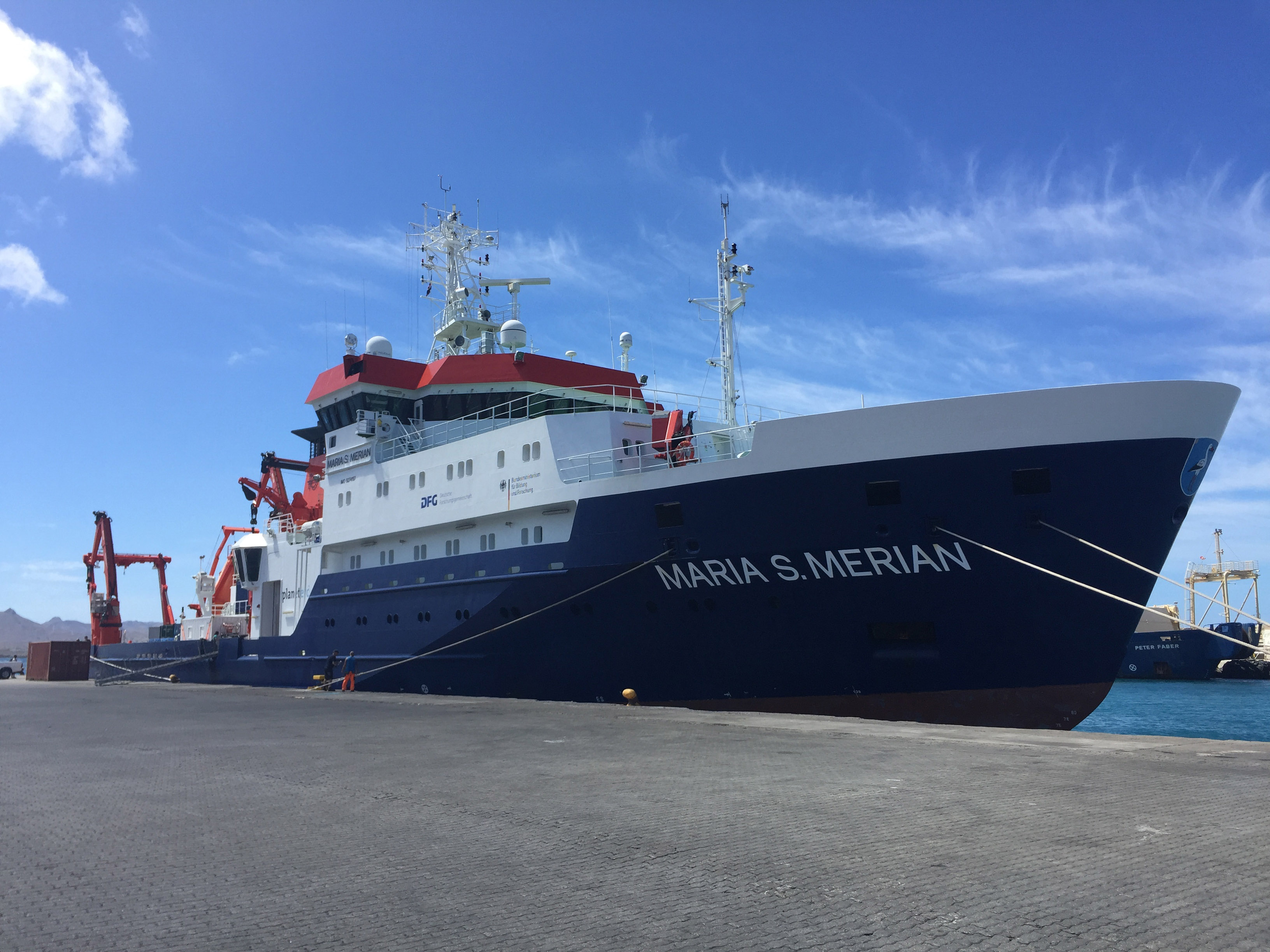*** English version below ***
Seit drei Jahren arbeite ich für die Organisation for Economic Co-operation and Development (OECD), deren Ziel es ist für die Regierungen seiner derzeit 35 Mitgliedsländer evidenz-basierte Politikempfehlungen zu formulieren. Ich selbst habe mich mit dem Thema Meereswirtschaft beschäftigt und dabei ökonomische Wachstumsprognosen für einzelne maritime Industrien sowie die Meereswirtschaft gesamtheitlich in verschiedenen Zukunftsszenarien berechnet, wobei ein wichtiger Fokus meiner Arbeit stets auf den aktuellen und zukünftigen Herausfordeungen der Meeresumwelt liegt. Die Felderfahrung an Bord bietet ein gesamtheitlicheres Verständnis für die Verbindungen zwischen maritimer Wissenschaft und Wirtschaft.
Das weltweite Bevölkerungswachstum wird uns vor große Herausforderungen stellen, wie Nahrungsmittelsicherheit, Energie- und Rohstoffversorgung, Beschäftigung und Wirtschaftswachstum für insgesamt 9-10 Milliarden Menschen. Wie in unserem OECD Report „Die Meereswirtschaft in 2030“ geschildert ist, stellen der Ozean und seine Ressourcen ein großes Potenzial dar, Antworten auf diese Herausforderungen zu finden. Die Meereswirtschaft mit ihren etablierten Industrien, wie Schifffahrt, Schiffsbau, Fischerei, Fischverarbeitung, Küstentourismus, Hafenindustrie, Offshore Öl und Gas, sowie neue Industriezweige, wie Offshore-Windkraft, Gezeiten-und Wellenenergie, Tiefseeabbau, Aquakultur, Biotechnologie haben alle das Potenzial das Wachstum der Gesamtwirtschaft hinsichtlich Wertschöpfung und Beschäftigung zu übertreffen und ihren Gesamtwert, gemessen an der Wertschöpfung bis 2030 verdoppeln.
Die Voraussetzung für die Meereswirtschaft ist ein intaktes Ökosystem, das jedoch von vielen Seiten bedroht wird. Die Forschung, wie sie hier an Bord der MERIAN betrieben wird, ist essentiell um Veränderungen hinsichtlich Azidität, Stratifizierung, Sauerstoffarmut, Biodiversität, Biomasse, Stoffkreislauf zu quantifizieren sowie Folgen von anderen Einflüssen, wie Überfischung und Überdüngung in Küstenregionen festzustellen und Langzeitprognosen zu entwickeln.
Anhand dieser Daten kann nicht nur der Zustand der Meere bemessen werden, sondern auch Wetterprognosen für die Vorbereitung vor Stürmen, Regenfallanomalitäten und Regenzeiten entwickelt werden. Darüberhinaus dienen die Daten über Gezeiten, Strömungen und Wellenrichtungen als Grundlage für nautische Vorhersagen und sind von direktem Nutzen für maritime Industriezweige, wie Schifffahrt, Fischerei und Offshore-Energieindustrien.
Für die Kollegen der UN, weiteren Organisationen sowie für uns, dienen die erhobenen physikalischen, biologischen und chemischen Parameter die Grundlage zur Indikatorbildung von globalen Nachhaltigkeitsstrategien, wie zum Beispiel dem UN Sustainable Development Goal Nummer 14 „für die Erhaltung und der nachhaltigen Nutzung der Meere und seiner marinen Ressourcen“.
Da die wirtschaftlichen Aktivitäten in den Meeren weiter zunehmen werden, ist ein integriertes und gesamtheitliches Management der Ozeane erforderlich. Die Daten, die an Bord erhoben werden, liefern dafür wichtige Informationen.
Anna-Sophie Liebender
*** English version ***
For the past three years I have been working for the Organization for Economic Co-operation and Development (OECD). The goal of the organization is to provide evidence-based policy recommendations to its 35 member countries. Since then I have been focusing on the ocean economy, and have developed scenarios for economic growth of different ocean-based industries and the total ocean economy. An important aspect of my work has also been to indicate how current and future pressures change the ocean environment and directly and indirectly effect the future potential of ocean-based industries and vice-versa. The field experience on board of the MERIAN is a perfect opportunity to gain a more holistic understanding of the interactions between maritime industries and science.
Population growth of 2 billion more people by the middle of this century, along with the provision of food, security, energy, and resources as well as employment and economic growth, pose big challenges for the planet in the next decades to come. As shown in our OECD report “The Ocean Economy in 2030”, the ocean and its resources hold great potential in making a contribution in addressing these challenges. The ocean economy – together with the established ocean-based industries like shipping, shipbuilding, fishing, fish processing, maritime and coastal tourism, port activities, offshore oil & gas exploration – as well as the emerging ocean-based industries as offshore wind, tidal- and wave energy, deep sea mining, aquaculture, marine biotechnology – hold the potential to outperform the growth of the economy in terms of value added and employment. Our models suggested that the total value added of all industries combined is likely to double by 2030.
Healthy oceans and seas are essential for the growth of the ocean economy which is already under significant stress. The research on board is essential to quantify the changes regarding acidification, stratification, deoxygenation, nutrient cycle, loss of biodiversity and biomass, and further impacts as overfishing and land-based nutrient run-off in coastal zones, to develop analysis of current and future health of the oceans. The above factors will be decisive for how productive the ocean will be.
That data is essential to analyze the conditions of marine ecosystems. Further, it is the basis for the development of weather forecasts for better preparedness of storms, rain fall anomalies and rain seasons for society and the industries on land. Further, ocean-based industries such as fisheries, shipping, and offshore energies benefit directly from the data since they rely on products such as nautical forecasts about tides, currents, and wave directions.
Finally, the physical, biological, and chemical data provide crucial input for the development of indicators for global sustainability agendas, as the UN Sustainability Development Goals, in particular for SDG 14 indicator on “conserving and sustainably using the oceans, seas and marine resources for sustainable development”.
Since ocean-based industries will continue to grow, an integrated and holistic management of the oceans is needed. The data gathered on board provides crucial information for policy makers and the wider international community for these important next steps.
Anna-Sophie Liebender


Thank you for this important work. And thank you for letting us know science and policy are working for the world now and for all of our futures.